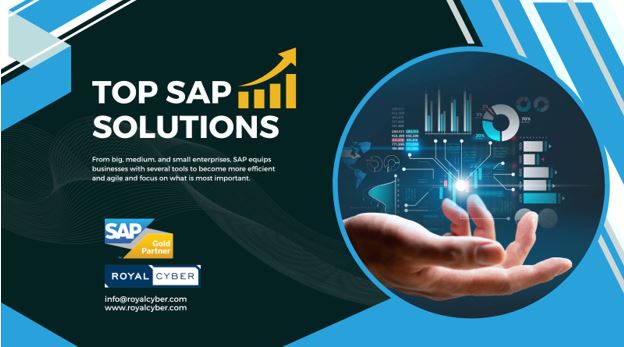Building A Cyber-Safe Generation
In the age of technology, the internet is an essential part of our lives. From streaming movies and connecting with friends to shopping and working remotely, our online activities are limitless. But with all the convenience that comes with being connected, there are risks that we face every day.
Whether you’re using fiber optic internet for lightning-fast speeds or accessing the web through your mobile phone, every click you make can lead to potential threats. Building a cyber-safe generation doesn’t have anything to do with your age or when you were born; it’s about developing the right mindset and taking the steps to protect yourself and others online.
In this article, we’ll explore how you can be a part of a cyber-safe generation by adopting simple habits and practices that will help keep your online world safe. It’s about being proactive, not reactive, when it comes to digital safety. Let’s dive in!
Understanding the Digital Landscape
The internet is like a giant digital city. It’s full of exciting things to explore, but just like any city, it has its dangers. Hackers, scammers, and cybercriminals are lurking around every corner, waiting for an opportunity to exploit weak points in your security. These threats aren’t always obvious, and they come in many different forms. Phishing emails, malware, and even data breaches at popular websites are just some of the dangers that could compromise your online safety.
Being a part of the cyber-safe generation means understanding the digital landscape and the risks that come with it. It’s about knowing that the internet is a great place to be, but it’s important to take precautions to protect your personal information.
Your Online Identity Matters
One of the most valuable things you have online is your personal identity. From your social media accounts to your banking apps, everything you do online is tied to your identity. The more you use the internet, the more chances there are for your information to be exposed. Cybercriminals can use your identity to commit fraud, steal money, or damage your reputation.
Creating strong passwords is a simple yet effective way to protect your identity. But remember, it’s not just about using a password that’s hard to guess. It’s about using unique passwords for different accounts and enabling two-factor authentication (2FA) whenever possible. Think of your password as the key to a locked door – if someone can guess it, they can walk right in.
Another great habit to get into is regularly checking the privacy settings on your social media accounts. Make sure you know who can see your posts, and avoid oversharing personal information. A little caution goes a long way when it comes to protecting your digital self.
The Importance of Regular Software Updates
One of the easiest ways to keep your devices safe is by making sure that all your software is up-to-date. Whether you’re using a computer, smartphone, or tablet, software updates often include security patches that address vulnerabilities in your system. Cybercriminals are always looking for ways to exploit weaknesses in outdated software, so keeping your devices updated is an essential part of being cyber-safe.
This also applies to apps and other programs you download. Don’t ignore update notifications, and check regularly to ensure that your apps are running the latest versions. Many updates might seem like small improvements, but they can be crucial in keeping your devices secure.
Learning the Dangers of Public Wi-Fi
Public Wi-Fi is great when you’re on the go and need to check your email or post something on social media, but it also comes with risks. Because these networks are open and unsecured, hackers can easily intercept your data. Think about it – you’re sitting in a coffee shop, connected to Wi-Fi, and checking your bank account or sending an email. A cybercriminal sitting nearby could be watching all your activity.
To stay safe when using public Wi-Fi, avoid logging into sensitive accounts like your bank or shopping sites unless you’re connected to a secure network. Using a Virtual Private Network (VPN) can add an extra layer of security by encrypting your internet connection, making it much harder for anyone to intercept your data.
Teaching the Next Generation About Cyber Safety
If you’re a parent or caregiver, you have a responsibility to educate younger generations about staying safe online. Kids today are growing up in a world where the internet is as familiar to them as television or video games. Teaching them how to spot suspicious emails, avoid dangerous websites, and protect their personal information is just as important as teaching them to look both ways before crossing the street.
One way to do this is by setting a good example. Practice good cyber hygiene yourself, and make sure your children know the importance of strong passwords, privacy settings, and the risks of oversharing online. Having regular conversations about online safety will help them understand the importance of being cautious when using the internet.
Why Cyber Safety is Everyone’s Responsibility
A cyber-safe generation isn’t just about protecting yourself; it’s about creating a safer online environment for everyone. When you take steps to protect your personal information, you’re not only safeguarding yourself but also contributing to the overall safety of the internet. Cybercriminals often target individuals with weak security, but if we all practice good online habits, we can make it much harder for them to succeed.
Being part of the cyber-safe generation means sharing your knowledge with others. Whether it’s your friends, family, or colleagues, help them understand the importance of online security. The more people who are aware of the risks and take action, the harder it becomes for cybercriminals to cause harm.
Conclusion: The Power of a Cyber-Safe Mindset
At the end of the day, building a cyber-safe generation starts with one thing: mindset. It’s about understanding that the internet is a tool that can be used for good, but it comes with risks. By adopting safe habits, staying informed about the latest threats, and helping others do the same, you can play a vital role in making the online world a safer place.
So, whether you’re a teenager just starting to explore the web or an adult who’s been online for years, remember this: being cyber-safe isn’t about your age, it’s about your attitude. Stay vigilant, stay informed, and together, we can build a cyber-safe generation.





